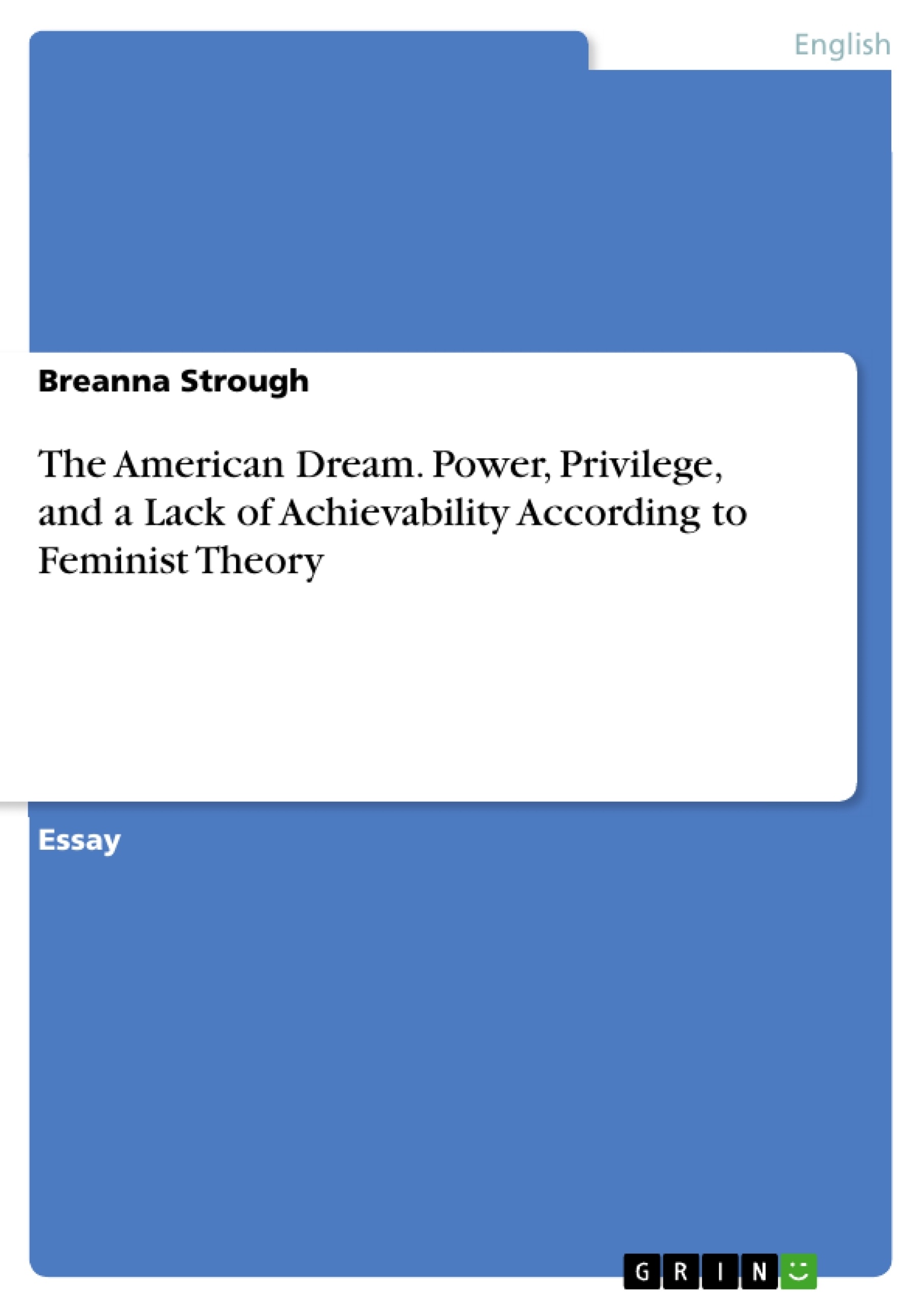Is the American Dream actually achievable? Currently, no, it isn't. We live in an America that is full of inequality based on race, class, gender, size, sexual orientation, and more. Between voting rights restrictions, misogyny, white supremacy, and privilege/power dynamics, the America we call the land of equality isn't so equal.
People have redefined the American Dream again, usually as something along the line of “social mobility” or “rags to riches”. This concept focuses on the idea that anyone can move up in the world if they just work hard enough. This, of course, naively ignores power and privilege dynamics and just assumes that everyone is going up against the same hurdles. This American Dream is seen as possible for everyone to achieve because those who ascribe to it don’t understand that some people have challenges they don’t, or that some challenges aren’t possible to overcome with hard work alone. In fact, some people can’t work at all, believe it or not.
I have always defined the American Dream as achieving equality. Based on my observations of the country, America prides itself on being the freest and equal nation on the planet. We always feel the need to help other countries be as “perfect” as we are, and we always tell people that they should be grateful to be Americans because they’ll never have any “real” problems here. Many believe we live in a post-racial society that has no sexism, no inequality, and no worries. While this idea is a pleasant one, it is completely naïve. Of course, it may seem to the privileged that life is grand, but that is only because they aren’t facing the challenges that those without privilege have to face. The American Dream is achievable for white, middle-class, cisgender straight men; however, groups without those privileges have far less opportunity to achieve the Dream.
Inhaltsverzeichnis (Table of Contents)
- Why Equality as the American Dream?
- What Do We Mean When We Say "Equality?"
- Everyone is Free and Equal Now, Right?
- Privilege in America
- Privilege and Intersectionality
- What about Reverse Discrimination? It Doesn't Exist!
- Social Mobility is Possible, Though, Right?
- So Two Versions of the American Dream aren't Possible. What if you Redefine It?
- Is Voting the Great Equalizer of America?
- Why Does all of this Matter?
Zielsetzung und Themenschwerpunkte (Objectives and Key Themes)
This paper aims to examine the American Dream through the lens of feminist theory, analyzing how power, privilege, and a lack of achievability for many groups, particularly women, influence the concept. It explores the historical evolution of the American Dream, highlighting the problematic assumptions embedded within traditional interpretations.
- The American Dream as a tool for perpetuating power imbalances
- The impact of privilege and intersectionality on the American Dream
- The evolution of the American Dream and its changing interpretations
- The limitations of traditional interpretations of the American Dream
- Feminist critique of the American Dream and its underlying assumptions
Zusammenfassung der Kapitel (Chapter Summaries)
- Why Equality as the American Dream?: This chapter explores the historical context of the American Dream, tracing its evolution from the idea of westward expansion to the concept of the "perfect life" and the traditional nuclear family. It challenges the narrative of the "American Dream" as a universally achievable ideal, particularly for marginalized groups.
- Privilege in America: This chapter delves into the concepts of privilege and intersectionality, examining how societal structures and power dynamics influence the accessibility of the American Dream for different groups. It explores the various forms of privilege, including racial, gender, and class-based privilege, and their impact on opportunities and outcomes.
- Is Voting the Great Equalizer of America?: This chapter analyzes the role of voting in promoting equality and achieving the American Dream. It examines the effectiveness of voting as a tool for social and economic change, considering its limitations and challenges.
- Why Does all of this Matter?: This chapter reflects on the significance of these discussions, emphasizing the need to critically examine the American Dream and its underlying assumptions. It encourages readers to engage with feminist theory and its implications for understanding societal power structures.
Schlüsselwörter (Keywords)
Key terms explored in this paper include the American Dream, feminist theory, power, privilege, intersectionality, social mobility, equality, gender roles, and traditional marriage. The paper focuses on examining how these concepts intersect and influence the attainability of the American Dream for different groups.
Frequently Asked Questions
How does feminist theory critique the "American Dream"?
It argues that the Dream naively ignores power and privilege dynamics, assuming everyone faces the same hurdles regardless of race, class, or gender.
Is the "rags to riches" concept considered achievable for everyone?
According to the text, currently no. While achievable for privileged groups, those without such privileges face challenges that hard work alone cannot overcome.
What is the role of "Intersectionality" in this discussion?
Intersectionality examines how various forms of privilege (racial, gender, class) intersect to influence a person's accessibility to the American Dream.
Does the author believe America is a post-racial society?
No, the author describes the idea of a post-racial society with no sexism as "completely naïve" and a pleasant but false narrative for the privileged.
Why is voting discussed in the context of the American Dream?
The paper analyzes whether voting acts as a "great equalizer" or if it has limitations in achieving true social and economic equality.
- Quote paper
- Breanna Strough (Author), 2015, The American Dream. Power, Privilege, and a Lack of Achievability According to Feminist Theory, Munich, GRIN Verlag, https://www.grin.com/document/322217



